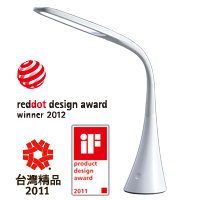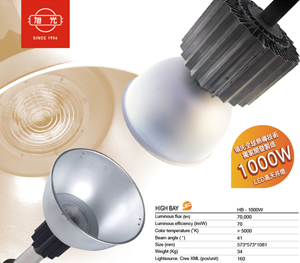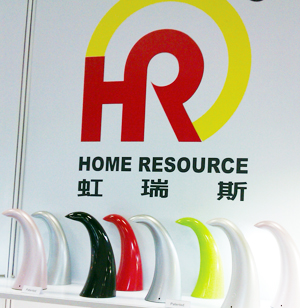LED Lighting May be Path to New Business Opportunities
Rising crude oil and electricity prices drive demand for LED lighting
2012/05/23 | By Michelle HsuDemand for eco products such as solar panels tend to vary according to official policies and prices of fossil fuel, and the same applies to the LED lighting market, which last year took a downturn. But the sluggishness of such market in Taiwan has been gradually reversing with the currently US$100-plus a barrel crude, which drives sales of energy-saving products as LED light sources and other energy-efficient lighting. Optimistic towards the LED lighting market, Tsankun, operator of a chain of electronics hypermarkets in Taiwan, has launched several models of own-brand LED bulbs, selling around 70,000 units in a single week in April. Other home appliance makers such as the Tatung Group and China Electric MFG. Corp. of Taiwan could not keep up with demand in the first quarter of this year, meanwhile urgently ordering more materials and parts from upstream suppliers.
Driven by rising oil and electricity prices in Taiwan, LED lighting firms on the island have also been enthusiastically promoting LED lighting, also impressing upon consumers the importance of energy conservation and building product recognition, all of which have fuelled sales.
Amid rising demand for energy-saving lighting, the Tatung Group in April launched new products including a wide range of smart meters, electric management system, frequency inverter air conditioners, fridges, washing machines, and LED lighting, with the event attracting lighting sector heavyweights as CEO of Formosa Epitaxy (supplier of Tatung's LED bulbs and LED tubes), indicative of the increasing importance of LED lighting among Tatung's product line.
Tatung general manager Lin-Kuo Wen-yen announced at the launch that all the 243 outlets islandwide will replace their lighting with modern LED counterparts within this year, also confirming that Tatung's LED bulbs and LED tubes are selling well. “Another wave of electricity price rise in May will further boost demand for LED lighting, and the LED lighting market has great potential, with Tatung planning to step up its R&D to speed launching of new LED lighting products,” she added.
China Electric
China Electric's vice general manager Dong Hsianyuan confirmed in April that the firm's current LED bulbs are in short supply and it needs one to two months to restock. The Hsinchu factory has started to produce more LED bulbs, with monthly output increasing from 20,000 to over 30,000 LED tubes during the first quarter of this year.
Besides Tatung and China Electric, other electronics companies as Chimei Group, Delta Electronics, Everlight Electronics are also joining the field to develop new products that are heating up competition.

Chimei Group
The Chimei Group started its lighting business in 2010 and saw annual sales amount of 40,000 units last year, and is targeting annual growth of 10% for this year based on such success.
Initially focusing on LED desk lamps, Chimei has even reportedly become a major rival to Philips Taiwan, which accounted for a 30% market share of Taiwan's LED desk lamp segment last year with its mainstream item priced between NT$2,500 and NT$3,000.
Last year, Chimei won a German iF Product Design Award with its Swan series of eye-protective LED desk lamps. The brightness is adjustable with a touch, incremental button. Different from typical LED lights with a blue/green tone, the Swan Series come with LED bulbs of a warm color or yellow that achieves natural color rendering.
The patented V-CUT filters effectively minimizes scattering and to achieve more even lumen-per-unit-area illumination, which is softer and more suitable for reading. Moreover, it uses 6500K white light which is considered the best color for reading. Its 1300 lux brightness, at distance of 35cm, optimizes many work tasks. The lamp has a wide illumination range and long life, without using mercury in manufacturing without emitting UV and is very energy-efficient, all of which justified its winning the iF Product Design Award.
In the first quarter this year, the Chimei Group released a double arm, triple-axle desk lamp with eye-protective LED bulb and wide-angle rotating arms, which is designed for senior managers and executives who spend long hours working daily, said Chimei.
The Chimei Group, besides developing practical eco lighting to enhance lifestyle, also has a grand motto to enable consumers to play a part in protecting the earth, by using eco-friendly materials in production. “We avoid conventional wisdom to use trendy lines to turn even mundane desk lamps into a fashion statement,” said a manager of Chimei's brand marketing department.

Taiwan Light
Taiwan Light Co., having upgraded itself from a traditional lighting company dating back to 1954, is a major driver of Taiwan's lighting industry. Taiwan Light, known for innovation and development, claims to lead the world in exclusive conductance technology that is used in production of a wide range of high-power, high-luminosity and low-energy LED lighting and equipment.
Taiwan Light uses its patented technology to design the MR series bulbs that are less prone to overheating while still being brighter, more energy efficient, a feature that is particularly important in outdoor lighting for such lights need to be effective with little maintenance, with the technology quickly helping to cool LED bulbs. The minimally-scattering LED makes usage more comfortable; while many models are offered to suit various applications.
Taiwan Light uses its leading cooling technology and decades of lighting manufacturing experience to develop a comprehensive line of LED lighting, and this year launched several new models all featuring the same patented heat-dissipation technology, a unique advantage in the lighting market.
According to CEO Wang Taiguang, Taiwan Light will develop its lighting business along three major directions: first to develop advanced LED lighting for end-users; second to provide illumination solutions that are mood enhancing, innovative, fashionable that are instrumental to interior decor, third to continue strengthening leadership in heat dissipation technology (and heat dissipation modules), giving the company a competitive edge in the sector. The three directions can be pursued separately or integrated.

Home Resource
Home Resource, established in 1988, is a successful transformation of a traditional lighting fixture maker to one focused on innovative lighting, with the corporate philosophy to make “lighting” a residential asset.
Making globally competitive green lighting products, Home Resource offers fashionable LED lighting to over 50 countries. Its Portable Mushroom Desk Lamp won the 2008 iF Product Award, a reason motivating the Council for Cultural Development to invite the maker to introduce innovative lighting at global events.
Dedicated to R&D over the past two decades, Home Resource expanded its global operational network with the first overseas plant set up in Zhejiang Province, China in 1992, followed by another one in Guangzhou Province in 1995. Four years later, Home Resource established another plant in southern China as an OEM and ODM plant in 1999, showing the maker's quick expansion of the OEM business.
The 21st century is also a milestone for Home Resource, which started planning R&D to meet demands generated by rising green awareness, by constructing an R&D base in Guangdong Province, southern China. With strong R&D strength, Home Resource started to develop branding to explore the international lighting market.




